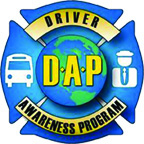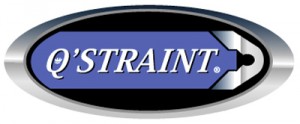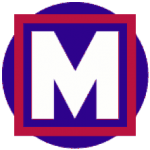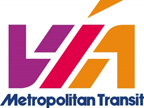
These honorees regard safety as the driving force
Drilling down to the core of the bus transportation industry, safety is what matters. From the front office to back of the shop, owners, operators, drivers, dispatchers and mechanics, everyone strives on a daily basis to learn, understand, improve and apply the highest levels of safety — a philosophy to live by, the only way to conduct business.
The measures of safety are severity and frequency. Too often the redeeming value of strict safety standards becomes clear only in the aftermath of a disaster. The most conscientious companies consider safety as an investment in a long and successful ride. We know of lesser companies that see safety measures cutting too deep into marginal profits, riding out the odds that something won’t happen. It will. Embracing safety is less expensive than facing the consequences.
Buses and coaches represent one of the safest modes of transportation, but safety is in no way inherent. The industry has worked hard for its reputation, which has come solely through the persistent effort to meet, maintain and exceed the established safety standards.
We know zero-event perfection is by no means the standard, but neither does adherence to federal regulation represent a minimum effort. While existing standards are a good place to start, the manufacturers and operators recognized here as the Best of BUSRide always strive to lead their peers to higher levels of safety.

Safety is a top priority at Anchor Trailways & Tours, Nashville, TN, and the company’s policies prove it. Anchor Trailways takes special care to protect its passengers from inclement weather and other hazards, and it’s laid out detailed safety plans and procedures for those outcomes.
Because weather conditions can change and deteriorate rapidly, Anchor Trailways does their best to reschedule group tips as needed. If the group runs into inclement weather on their trip, each driver uses discretion as necessary while en route. This may result in unavoidable delays if passenger safety is ever in question due to unforeseen or worsening driving conditions.
The company uses a GPS security tracking system. From any Internet connection, they can confirm departure, en route, during stops, and arrival information in real-time guaranteeing the exact location for a chartered group trip. Furthermore, customers can contact a dispatcher 24 hours a day by calling an after-hours line.
Anchor Trailways has received no small amount of recognition for their better safety practices. Vanessa Ballard, the company’s safety administrator, was one of 32 attendees invited this year to a week-long training session hosted by the Transportation Safety Institute in Nashville. She is now specially trained and certified on current regulations and pending programs administered by Department of Transportation. Henry Hurley, one of Anchor’s operators and trainers, was recently certified as a Smith System Driver Trainer. The Smith System Driver Institute focuses on collision prevention through hands-on training, classroom seminars, and E-learning.
Anchor Trailways holds a #1 Department of Defense (DOD) rating – the highest rating possible which qualifies them to transport American troops. The ratings run from 1 (satisfactory) to 5 (unsatisfactory).

John Passananti developed his proprietary Driver Awareness Program (D.A.P.) in direct response to the unsafe and unprofessional driving practices he has witnessed in his 30 years working in commercial transportation. In this time his duties with Campus Coach Lines and Hudson Transit, both based in New York, NY, have included conducting driver training sessions as well as safety presentations for Lancer Insurance Company, Long Beach, NY. The 2011 New York bus crash on the Brooklyn-Queens Expressway that killed 15 people sparked his idea for the program. He set out to develop a comprehensive driver training program he hopes will instill pride in the individual sitting behind the wheel of a luxury motorcoach.
In addition to rudimentary safe driving techniques, the D.A.P. program focuses on a thorough knowledge of the vehicle, driver appearance and personal conduct.
Passananti’s self-conducted D.A.P. seminar emphasizes seven points of awareness:
1. Be the captain
2. Know the bus
3. Represent the company
4. Respect the passengers
5. Make a smooth drive
6. Read the road
7. Obey the law
Passananti makes D.A.P. available to all bus and coach transportation companies, as well as municipal transit authorities, preferably in groups of 10 to 15 drivers. The seminar includes a follow-up visit after six months to review the progress of each participant and addresses other issues and trouble spots.
Upon completion of the program, each driver receives his D.A.P. certification. Passananti also sends a letter to the operator company, with copies to the insurance company and state DOT, stating he has put the driver through the program.

Los Angeles County Metropolitan Transportation Authority (Metro) has made a special effort to educate riders about transit safety. To that end, the Metro-operated Transit Safety Programs has been an unqualified success.
Transit Education Programs’ main function is to give informative safety presentations to the community. The presentation can range from 15 minutes to one hour, depending on the needs of the audience. Vivid site-specific presentations are offered in a classroom setting, using photos and videos from communities along the Metro Rail and Bus Corridors.
The program’s secondary goal is to teach Los Angeles students to ride the trains safely. This is done through safety orientation tours, where students from grades 1-12 receive a free day’s Metro pass to explore the transit system.
Program outreach also comes in the form of informative safety videos aimed at younger children and teens. Some videos feature Metro officials teaching viewers about rider safety. Others, both animated and live-action, feature the Safety Robots, anthropomorphic buses and rail cars that appeal to younger riders while giving important safety lessons.
The Transit Safety Programs website also features various Flash-powered pages with games and activities for riders. They’re segregated by age to increase appeal. Metro Safety Bee Interactive is geared to children in grades K-3 (ages 5-8), Metro Safety Kids Interactive is aimed at children in grades 4-5 (ages 9-10), and Metro Safety Teens is for high-school aged teenagers.
The various sites employ games and quizzes for education, encouraging younger riders to interact with Metro’s overall safety message. This gels with the education method that Metro employs. Kids get to play a game online, while parents can rest easy knowing that their child is actually learning about Metro Codes of Conduct and rules for riding safely.

Accident prevention is integral to the corporate culture of the Pacific Western Group of Companies, Calgary, AB, Canada. Safety is the core value that unites each operation within the organization.
Its well-honed safety policies and practices earn recognition for the attention the company gives to the well being of its passengers, employees and the public in all of the communities it serves.
The Pacific Western safety culture empowers every employee to recognize potential safety issues — from the merest parking lot ding to the catastrophic event. The company encourages staff and employees to be proactive in remedying any unsafe situation . All employees follow all established safety procedures. The message is simple: never is any job so important or so urgent that a person cannot forego the time to do it safely.
Pacific Western says collisions and lapses do not just happen. Training reinforces the goal to continually seek out the causes, devise protective measures and promote a safety-minded attitude at every level within the company. The company mandates employees to anticipate potential problems and always work with a total awareness to their surroundings.
Best practices that encourage continuous improvement mean setting challenging goals, measuring and evaluating performance and learning from experience. It not only means regular, thorough inspections of the equipment and work areas, but careful record keeping and data analysis for monitoring safety and staying compliant in every way.

Peter Pan remains a family-owned business and is one of the largest privately owned intercity bus companies in the United States with the most modern fleet of buses numbering 300-plus vehicles. The company stakes its reputation for high safety standards on drivers who continually receive national recognition for their individual achievements in safety. It boasts more coach drivers with one million miles behind the wheel than any other company.
This significant milestone in the career of a professional motorcoach requires a minimum of 12 years to accomplish. Peter Pan is one of the few bus companies in North America to employ six or more veteran coach drivers who have driven three million miles or more without an accident. The company equates their total miles to nearly 100 trips to the moon, all while maintaining the highest safety ratings from the U.S. Department of Transportation and the Department of Defense (DOD).
The DOD safety inspection is the strictest in the transportation industry, one in which Peter Pan Bus Lines routinely earns the highest possible safety rating. Each year, DOD sends a subcontractor to inspect operations on behalf of the Defense Travel Management Office. Peter Pan is consistently compliant with the stringent guidelines of the government’s Military Bus Agreement and the Federal Motor Carrier Safety Regulations.

Q’Straint, Ft. Lauderdale, FL, earns recognition for its wheelchair passenger safety solutions for public and private transportation. The singular focus the 25-year old company gives to the engineering and securements to make mobility-challenged passengers safer in moving vehicles goes unmatched in more than 50 countries. Its network of representatives serves carriers throughout North and South America, Europe, Oceania, Asia, the Middle East and Africa.
Q’Straint began in the 1970s by solving a simply stated problem of how best to secure wheelchair passengers. A team of Queens University students and specialists successfully demonstrated the safety needs of wheelchair passengers are unique, which led them to develop the world’s first fully integrated 4-point wheelchair passenger securement system and serialized belts and kits.
As Q’Straint was the first to introduce this innovative system to the global transportation industry, the crown in the corporate logo speaks to this achievement. The company has continued to build on its list of firsts.
Q’Straint was the first to apply the reliable sled test commonly used to test automobile safety belts to wheelchair passenger securement systems. It was the first to recommend forward facing wheelchair securement. The company also participated with NHTSA in the development of ADA regulations for wheelchair passenger securement, and is the only securement company in the industry to earn ISO 9000 registration.
Q’Straint is also the first to develop comprehensive training package and provide national training seminars throughout North America.
The Product Development team consistently employs the latest technologies and techniques to ensure securements

Metro St. Louis, St. Louis, MO, is a diverse agency that operates the entire public transit network comprised of MetroBus, MetroLink light rail and Call-A-Ride paratransit. The agency first engaged in predictive monitoring model in 2005 to foresee equipment failures. Predictive monitoring technology compares real-time data to normal parameters established in the model. Any deviation from the norm translates as a triggering event that suggests the type of failure that is in store, and predicts when it is likely to occur. Metro St. Louis personalized each bus in the fleet to eliminate any generalization as to why and when to send a particular vehicle in for maintenance.
Real-time sensors measure road speed, engine speed, engine load, cooling temperatures, oil pressure, fuel consumption, as well as ambient temperatures outside the bus. The information feeds to a central computer for analysis and follows with an Internet presentation to service technicians.
Metro St. Louis is an agency well ahead of the curve in this area, in which the residual impact on safety is immeasurable. The agency has worked diligently to develop its proprietary system built to its own specifications.
The techs in the shop call the program The Plan, which basically keeps minor problem from developing into costly repairs. The predictive diagnostics provide empirical and timely evidence that enables the agency to manage maintenance schedules more precisely without wasting time and money.
Now a failure of any sort is something Metro St. Louis takes very personally, right along with safety.

Transit & Paratransit Company (TAPTCO), Macedonia, OH, developed comprehensive training courses for both transit and paratransit bus operators, as well as a trainer certification process. With a special emphasis on driver safety, the company reports significant improvements in municipalities and agencies where the program was implemented.
Investing more than $500,000 to create the courses — Transit Operator Development, Paratransit Operator Development, and Trainer Certification Process — resulted in high-quality video presentations that include classroom facilitator guides, behind-the-wheel instructor guides, operator study guides and operator training progress charts. So far, 35 transit agencies throughout North America have signed on with TAPTCO.
With the training programs currently in use at every First Transit Services location, for example, the agency reported the lowest DOT accident rate in years – 0.29 DOT accidents per million miles. The Laidlaw group, after implementing TAPTCO’s services, reduced accident frequency rate by 72 percent. Annual accident savings across all of Laidlaw was $58 million per year.
Mark G. Gardner, the founder and CEO of TAPTCO, says his company is the first and only company dedicated solely to improving human performance in the ground passenger transportation markets.
A comprehensive safety message is integrated into every module, aimed specifically at the driver. By placing special emphasis on the driver, the training modules curb risky behaviors that typically lead to crashes.

After implementing its most recent safety initiative in 2009, VIA’s total bus and van accidents declined from 1,119 to 878 by 2011, representing a 21-percent reduction. The preventable accident rate dropped from 1.03 accidents per 100,000 miles in 2011 to a new low of 0.48. VIA safety centers around four key areas: communication and recognition, training and education, equipment and infrastructure, and analysis and investigation.
The agency constantly reminds drivers to be cognizant of simple practices, like minding the parking brake or to always watch out for pedestrians.
Since the zero-tolerance policy for electronic devices was implemented, no violations or terminations have occurred in the last two years. Refresher training is mandatory for drivers involved in any preventable accident, while it was only required for a certain accident threshold before 2011. The installation of video cameras has greatly reduced the uncertainty surrounding accident reporting and determination.
VIA designs infrastructure with pedestrian and rider safety in mind. The agency designs new transit centers to minimize the points at which bus and pedestrian traffic cross. New paint schemes for buses increase visibility.
VIA uses a Secret Shopper program twice a year, to ensure that drivers follow regulations. This area, the analysis of driver behavior and agency policies, is the final crucial step which allows VIA to boast one of the safest driving records in the nation.
